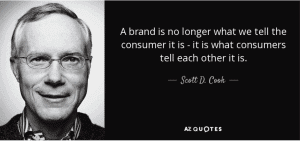Like other industries, car dealers and OEMs are shifting from focusing on the product to addressing the wants and needs of prospective car buyers. What are California car buyers looking for? Let’s take a look.
Decision-Making Process
Today, car buyers conduct up to 70% of their research online, long before they begin browsing in a dealership. According to one consumer insights study, they typically seek answers to the following questions during their decision-making process:
- — Which makes and models have the best overall reputation?
- — Which combination of styling and features satisfies my needs?
- — What can I afford?
- — Where should I make my purchase?
- — Am I getting a fair price?
These priorities suggest that brand perception is most important, followed by model selection, dealer reputation, and finally pricing. Let’s explore how each element ultimately impacts the purchasing decision.
Brand Perception
According to the 2017 AMCI’s Trusted Automotive Brand Study, it is trust that drives sales, brand loyalty, and advocacy. While there may be a tendency to promote engine performance or innovations in technology, customers today are most concerned with durability and quality. Above all, car buyers expect their vehicles to be reliable.

When considering brand, prospective buyers want to feel that they can trust this brand, that it has a solid reputation and, that it has been designed to fit their lifestyle.
Model Selection
A recent Autotrader study found that nearly two-thirds of car buyers believe new technologies improve the way they drive. They prefer models with safety feature, such as blind-spot detection and forward collision, over brand, body, or style. In addition, US automakers are competing to provide the state-of-the-art entertainment and communication technologies that are essential to attracting Millennials.
Dealer Reputation
While a customer may have done much of their research before they enter a dealership, their decision to buy will still be contingent upon their interaction with the salesperson. Establishing rapport becomes more crucial than ever before.
Some of the triggers that can promote or obstruct rapport building include: respect for customers’ time, engaging with the customers to discover their specific needs, and a bit of hand-holding to demonstrate in-car technologies during test drives.
By taking time to uncover individual needs and preferences, a salesperson has the opportunity to extend their sales through customer advocacy. Thanks to the power of social media, people who appreciate exceptional service publicize their experiences far and wide.
Price
Once trust has been established, price is nearly irrelevant. While car buyers will look for a payment that fits their budget, they are willing to make a purchase without significant discounts if there is trust. In addition, Millennials and parents are willing to pay more for exceptional entertainment and safety technologies.
One successful California dealer has found that using the Kelley Blue Book® Price Advisor to price used cars has eliminated the time and frustration of traditional price haggling. Transparency and fairness have proven essential in building long-lasting trust with car buyers.
Customer Loyalty
Starbucks, Apple, and many others have shown us that if we can create a meaningful experience – an emotional connection – with our customers, they will stay with us forever. By making customers feel respected and valued, especially regarding their time and individual needs, dealers build long-lasting customer loyalty.
This emotional approach ties back to developing trust. The AMCI study found that trust is a fundamental driver and has a direct, predictive impact on car-buying decisions. They found that car buyers looked for quality control, authentic dialogue, and respect, shared values, and a genuine understanding of their individual needs.
At every step of the process, car buyers are looking for reassurance that their new car will fit their lifestyle and their budget. And, they are quite likely to share their experiences – good or bad – throughout their personal and professional networks.
What Matters Most?
In California and elsewhere, car-buyers begin their searches online. They are influenced by friends, family, and professional and personal review commentaries on brands, models, and customer experiences with individual dealers.
For dealers, the rules have changed. To be successful, a salesperson now has to be a good listener, focus on the customer, and provide an exceptional experience. What matters most to California car buyers is trust – trust that the brand has a good reputation, is safe and reliable; that the model they choose fits their needs and budget, that the dealer is known for fair pricing and full transparency. Price does matter but, at the point of sale, it is less of an issue than it has ever been before.
Drowning in Paperwork?
Does just thinking about the DMV give you a headache? Are you ready to simplify and streamline transactions? Quick Auto Tags exists to help dealerships and OEMs process titles and solve problems related to the California DMV. For more information about how Quick Auto Tags can help your dealership, review our services for dealers, then send us message, or give us a call at our office in Riverside: 951.684.0494.

